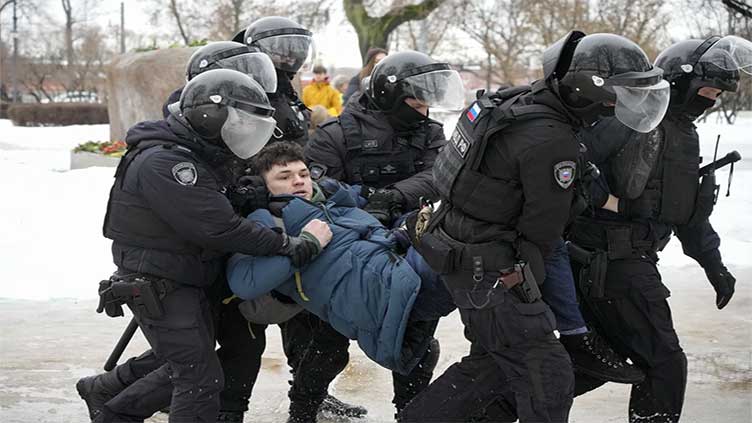Putin's crackdown on dissent became the hallmark of the Russian leader's 24 years in power

World
Putin’s crackdown on dissent became the hallmark of the Russian leader’s 24 years in power
TALLINN, Estonia (AP) — When charismatic opposition leader Boris Nemtsov was gunned down on a bridge near the Kremlin in February 2015, more than 50,000 Muscovites expressed their shock and outrage the next day at the brazen assassination. Police stood aside as they rallied and chanted anti-government slogans.
Nine years later, stunned and angry Russians streamed into the streets on the night of Feb. 16, when they heard that popular opposition politician Alexei Navalny had died in prison. But this time, those laying flowers at impromptu memorials in major cities were met by riot police, who arrested and dragged hundreds of them away.
In those intervening years, Vladimir Putin’s Russia evolved from a country that tolerated some dissent to one that ruthlessly suppresses it. Arrests, trials and long prison terms — once rare — are commonplace, especially after Moscow invaded Ukraine.
Alongside its political opponents, the Kremlin now also targets rights groups, independent media and other members of civil-society organizations, LGBTQ+ activists and certain religious affiliations.
“Russia is no longer an authoritarian state -– it is a totalitarian state,” said Oleg Orlov, co-chair of Memorial, the Russian human rights group that tracks political prisoners. “All these repressions are aimed at suppressing any independent expression about Russia’s political system, about the actions of the authorities, or any independent civil activists.”
Memorial estimates there are nearly 680 political prisoners in Russia. Another group, OVD-Info, said in November that 1,141 people are behind bars on politically motivated charges, with over 400 others receiving other punishment and nearly 300 more under investigation.
THE USSR VANISHES BUT REPRESSION RETURNS
There was a time after the collapse of the Soviet Union when it seemed Russia had turned a page and widespread repression was a thing of the past, said Orlov, a human rights advocate since the 1980s.


